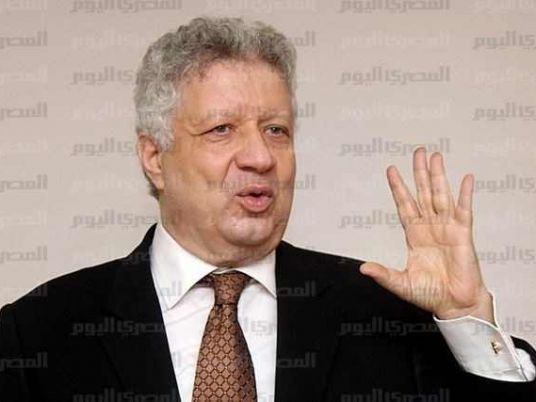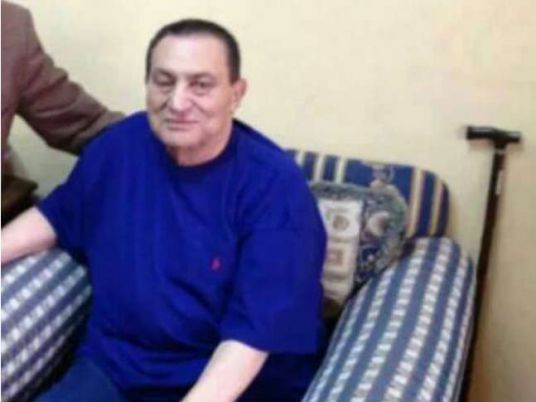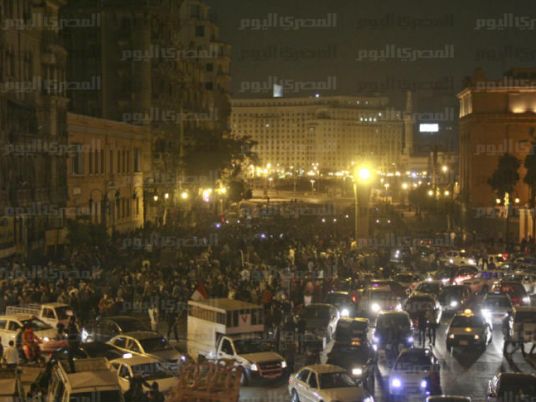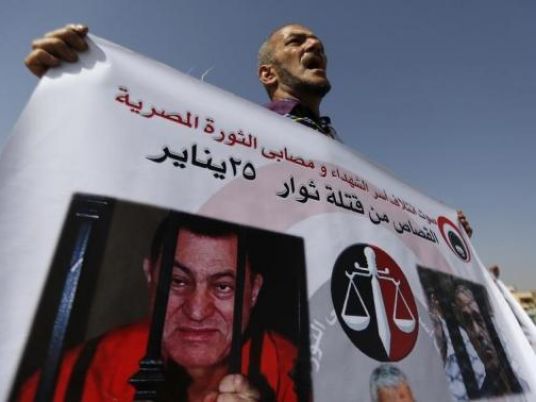Farid al-Deeb is unlikely to be fazed on Saturday, should a harsh ruling be issued against his most famous client, ousted President Hosni Mubarak.
Deeb is known to be lawyer not afraid of defending suspects whose innocence is hard to prove. He has, by now, surely gotten used to unpleasant rulings.
But he also frequently challenges them, taking advantage of his extensive knowledge of the Egyptian legal system. In many cases, he begins by reviewing the evidence and appealing the witnesses’ testimonies. He then writes lengthy memorandums that play on the judge’s doubts.
Deeb was born in Cairo in 1943. He graduated from law school in 1963, and worked as a prosecutor.
Along with dozens of judges and prosecutors, Deeb was targeted by former President Gamal Abdel Nasser in August 1969, in what was known as ‘Massacre of the Judges’ when the regime dismissed judges who defended their independence. Although Deeb never explained the details of his dismissal, papers from the time described him as a person of odd character, even when he was in his mid-twenties.
According to legal experts, Deeb adopts strategies that are very much unlike those of other lawyers. He doesn’t work on denying the charges in the beginning, instead playing on judges’ doubts about the incidents and witnesses’ testimonies.
Such strategies tend to yield positive results for Deeb and his clients. He doesn’t prove their innocence every time, but usually obtains more lenient sentences. His clients are more likely to spend years in prison rather than wearing the red suits that mark them for execution.
Deeb’s performance as the lawyer of the famous businessman Hesham Talaat Mostafa showcases his strategies, and how he has come to be known as one of the most brilliant Egyptian criminal lawyers in cases of murder, espionage and other charges.
During that trial, Deeb and his client pleaded guilty, saying Mostafa had committed the murder. He then reached an agreement with the victims’ relatives, after which judge Adel Abdel Salam Gomaa agreed to ease the sentence from death penalty to 15 years in prison.
In nearly every one of Deeb's cases, the media paints contradictory pictures of him as either an opportunist lawyer who will go to any length to secure his client’s innocence, or a brilliant attorney respected by judges for his intimate knowledge of the law.
According to lawyer Mahmoud Qandeel, Deeb has succeeded by being almost continually involved in cases that bring him into the spotlight. He has defended the Nobel laureate writer Naguib Mahfouz, writer Mahmoud al-Saadany, prominent journalists Ibrahim Seida and Mostafa Amin as well as actresses such as Yossra, Fify Abdu and Medhat Saleh.
He was also the lawyer of the deceased President Mohamed Anwar al-Sadat’s family in the defamation case filed by the family against Al-Arabi Al-Nasseri newspaper which accused Sadat of treason.
High-profile has become routine for Deeb, who seems to weather scandal with relative ease. Two of his most scandalous cases demonstrate his ability to work his clients out of the tightest legal corners.
The first was the case of the Israeli spy Azzam Azzam in 1997, when the Israeli Embassy in Cairo chose him as the suspect’s defense. Lawyers accused him of treason and smearing the Lawyers Syndicate’s image for defending a spy. He was threatened with punitive measures, which weren’t implemented as the court sentenced the suspect to 15 years in prison. He was later freed in 2004 as part of a political deal with Israel, after serving only eight years.
Deeb introduced his client as a naive person who was unwittingly involved in a spy ring. Despite harsh media coverage, he was able to rescue his client from death.
The second controversial case was his defense of Ghad al-Thawra Party Chief Ayman Nour when he was accused of forging signatures for the Ghad Party.
In recent months, details of Deeb's actions in the Nour case have emerged. In his plea, it seems Deeb accused Mubarak and his regime of corruption.
Deeb's arguments in Mubarak’s case do not involve denying the charges against him, rather confirming the grounds for his conviction. During Nour’s case in December 2005, Deeb described Mubarak’s regime as "treacherous" and that the case was about political revenge against Nour who ran in the 2005 presidential election and came in second after Mubarak.
The Azzam Azzam case and others prove Deeb’s affection for the counter-attack. Instead of refuting the evidence and witnesses’ testimonies, he faces the witnesses themselves with accusations that raise questions or require further review, which was exactly what he did in the final arguments of the trial of Mubarak and his sons Gamal and Alaa.
Deeb claimed that the trial should not be reviewed by the criminal court because Mubarak was a former military officer who should be tried in military court by law.
Deeb said the same during his initial arguments in the case. He accused the prosecution of fabricating the witnesses’ testimonies and claimed that Mubarak wasn’t the actual ruler of the country at the time and therefore that he wasn’t in charge of ordering protesters killed, as the military had taken over security on 28 January 2011. Media and legal experts said this tactic aimed to create a distraction.
In the beginning of the trial, the path to justice seemed clear. Many people were sure that a harsh sentence would be issued against Mubarak, his sons, former Interior Minister Habib al-Adly and his assistants.
However, attention to the case has waned, and many fear that the court’s ruling will not be fair punishment for all of the lives taken during those 18 days.




